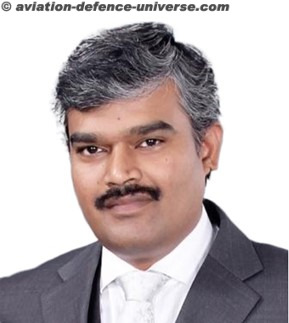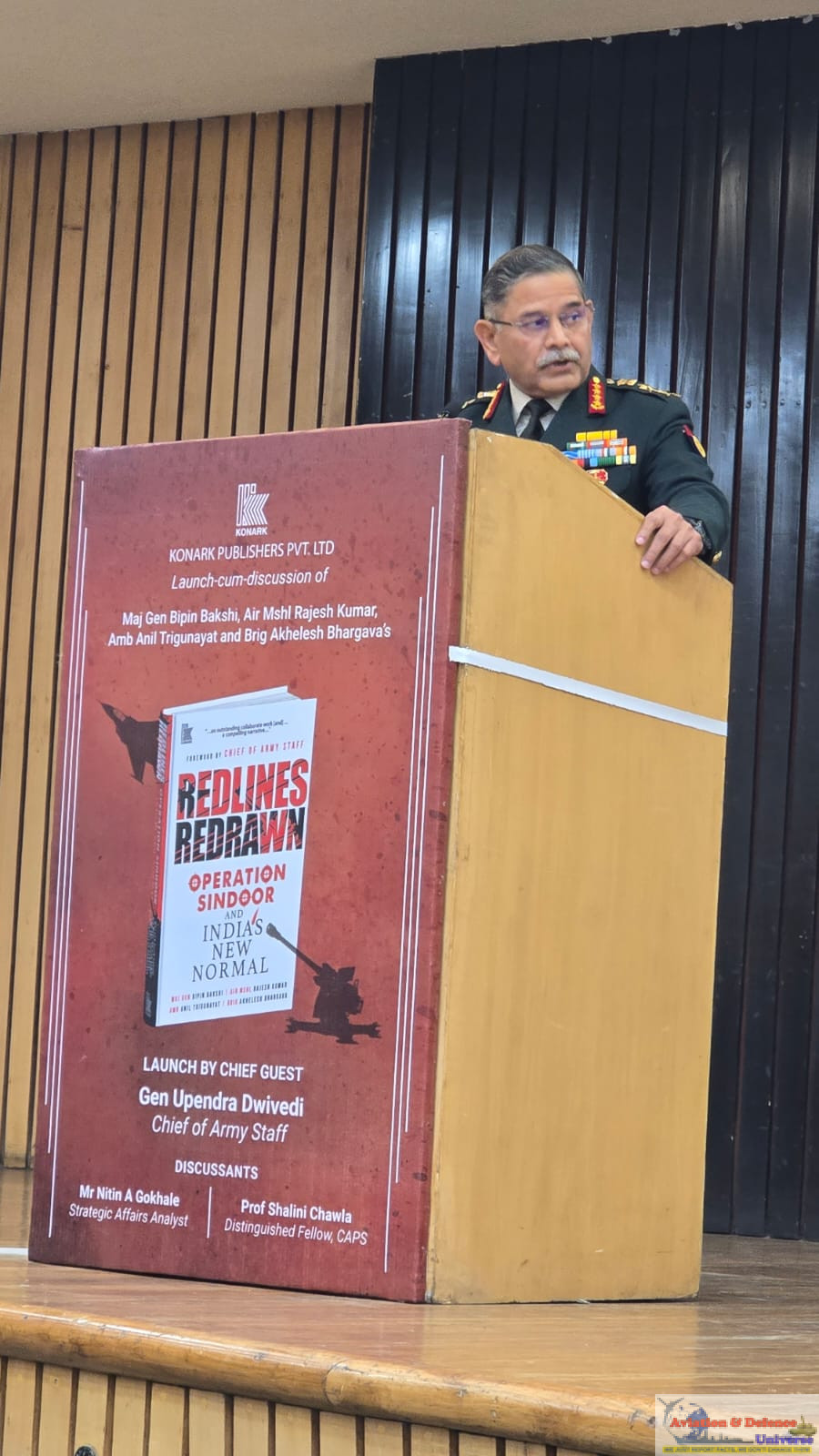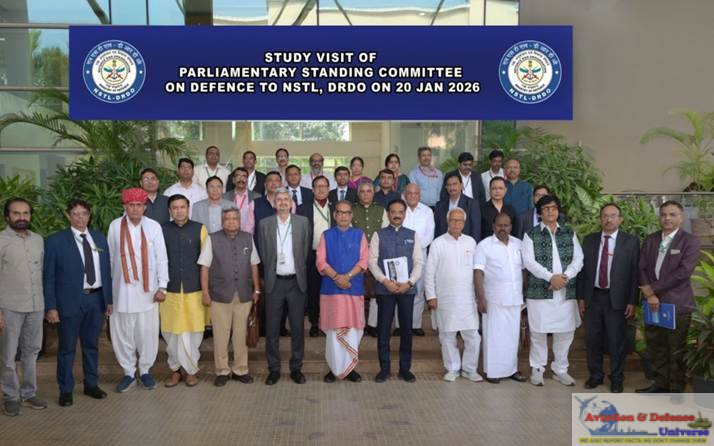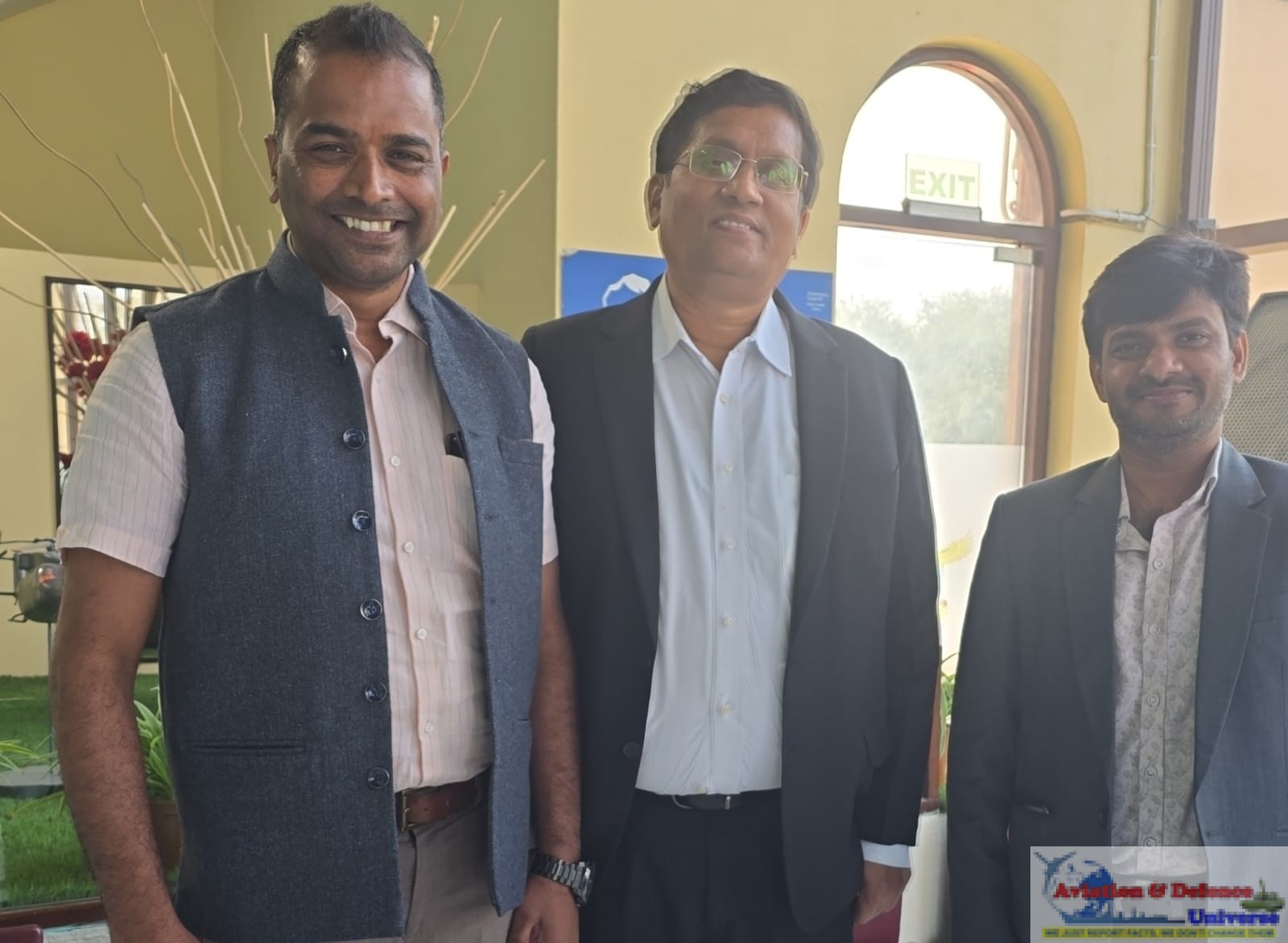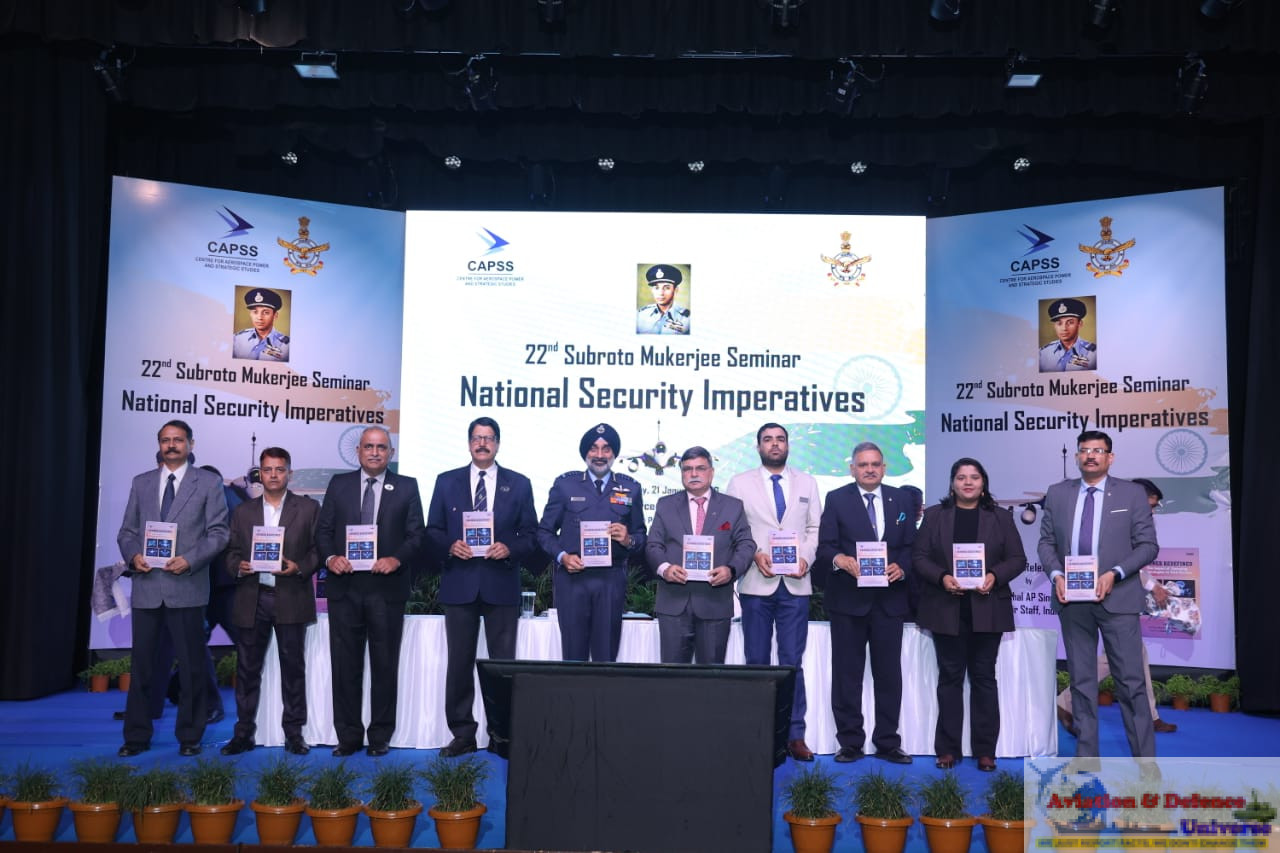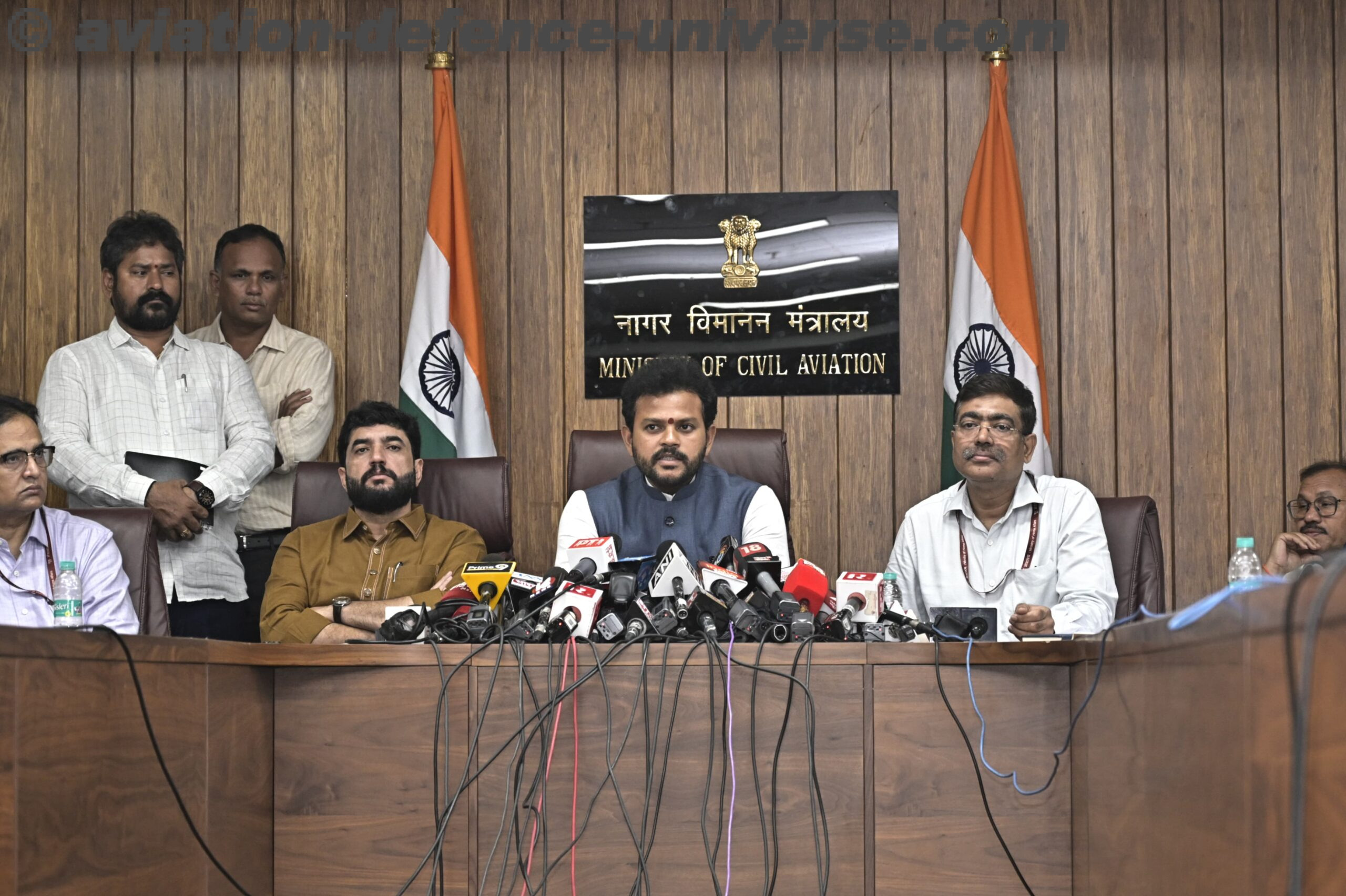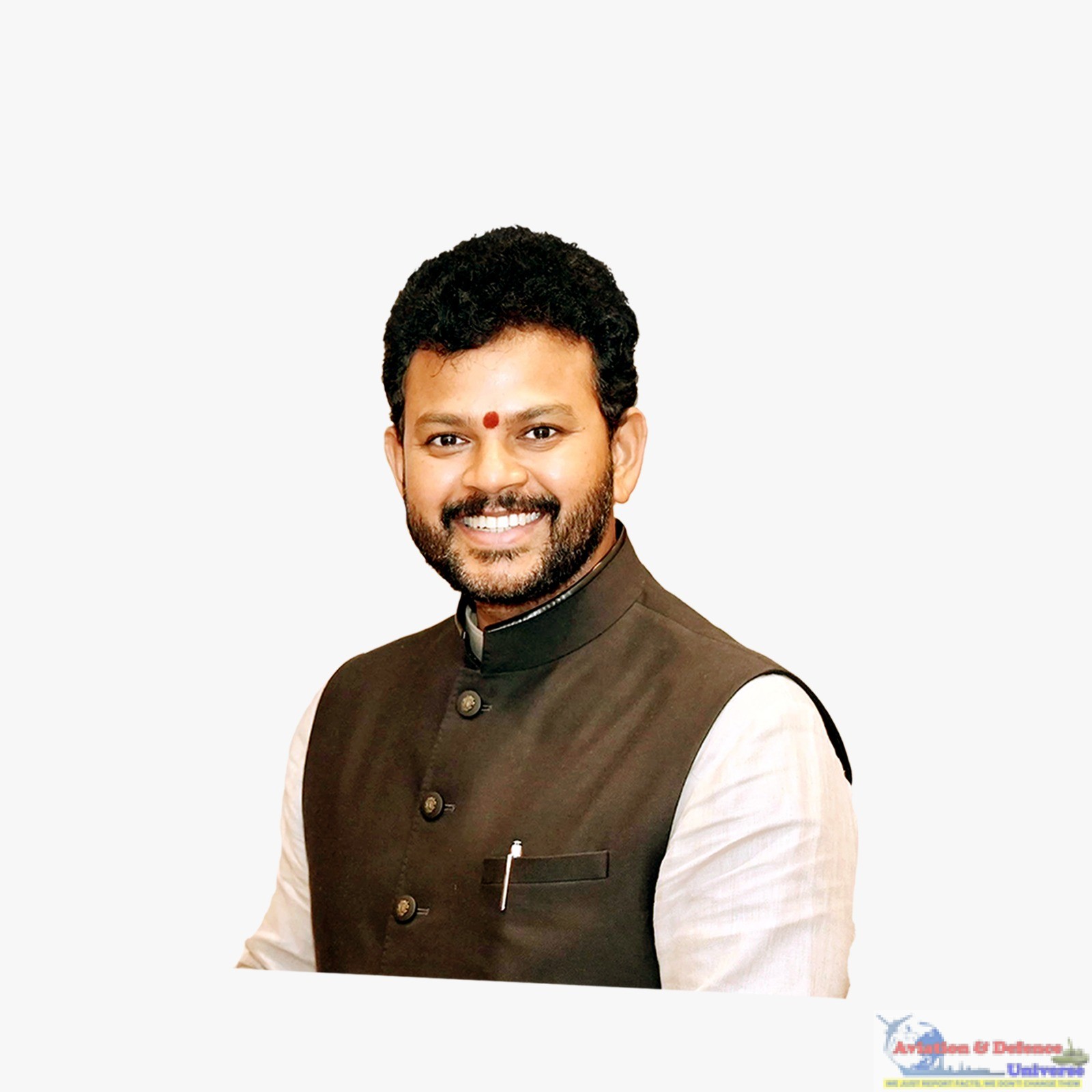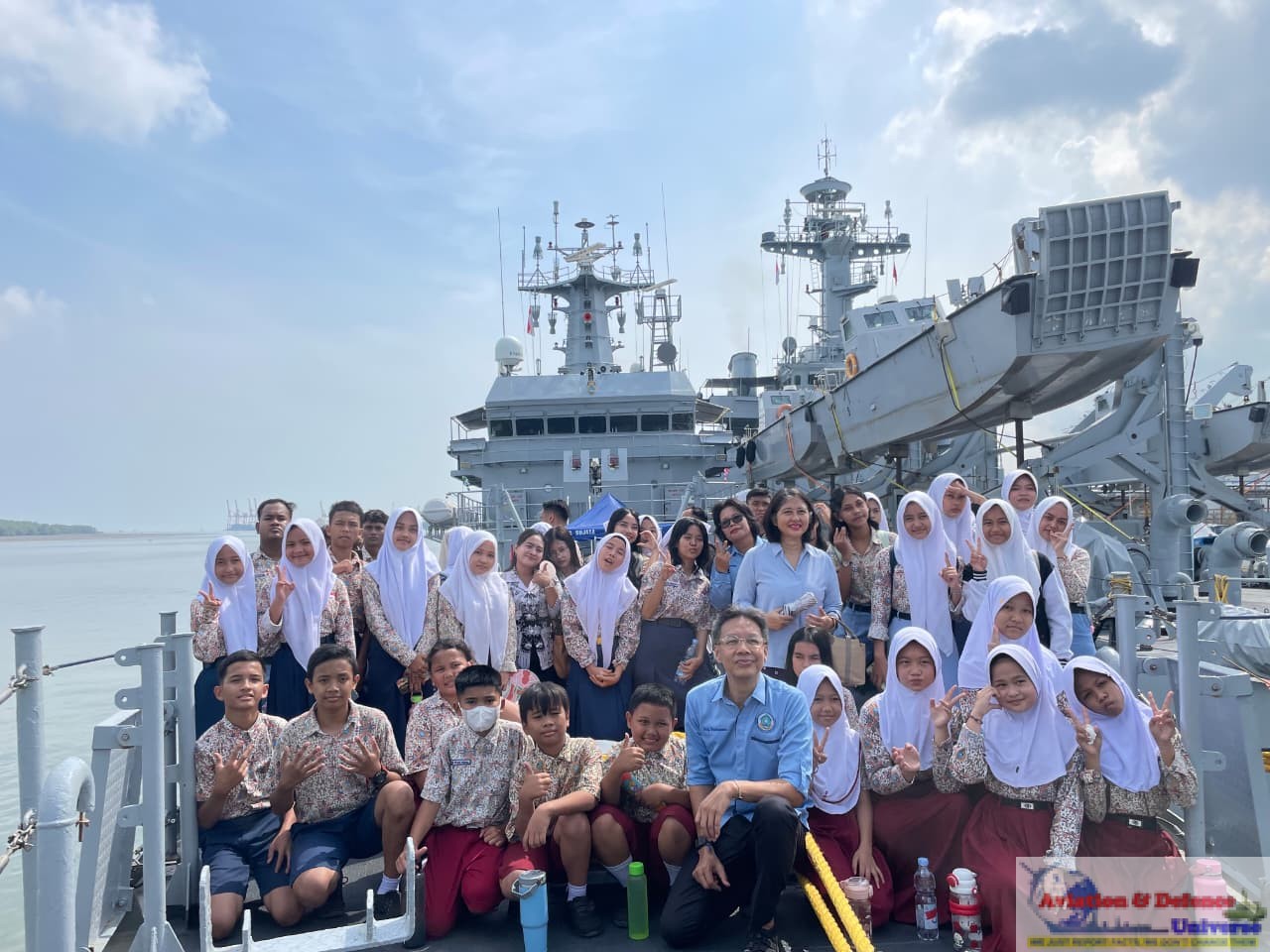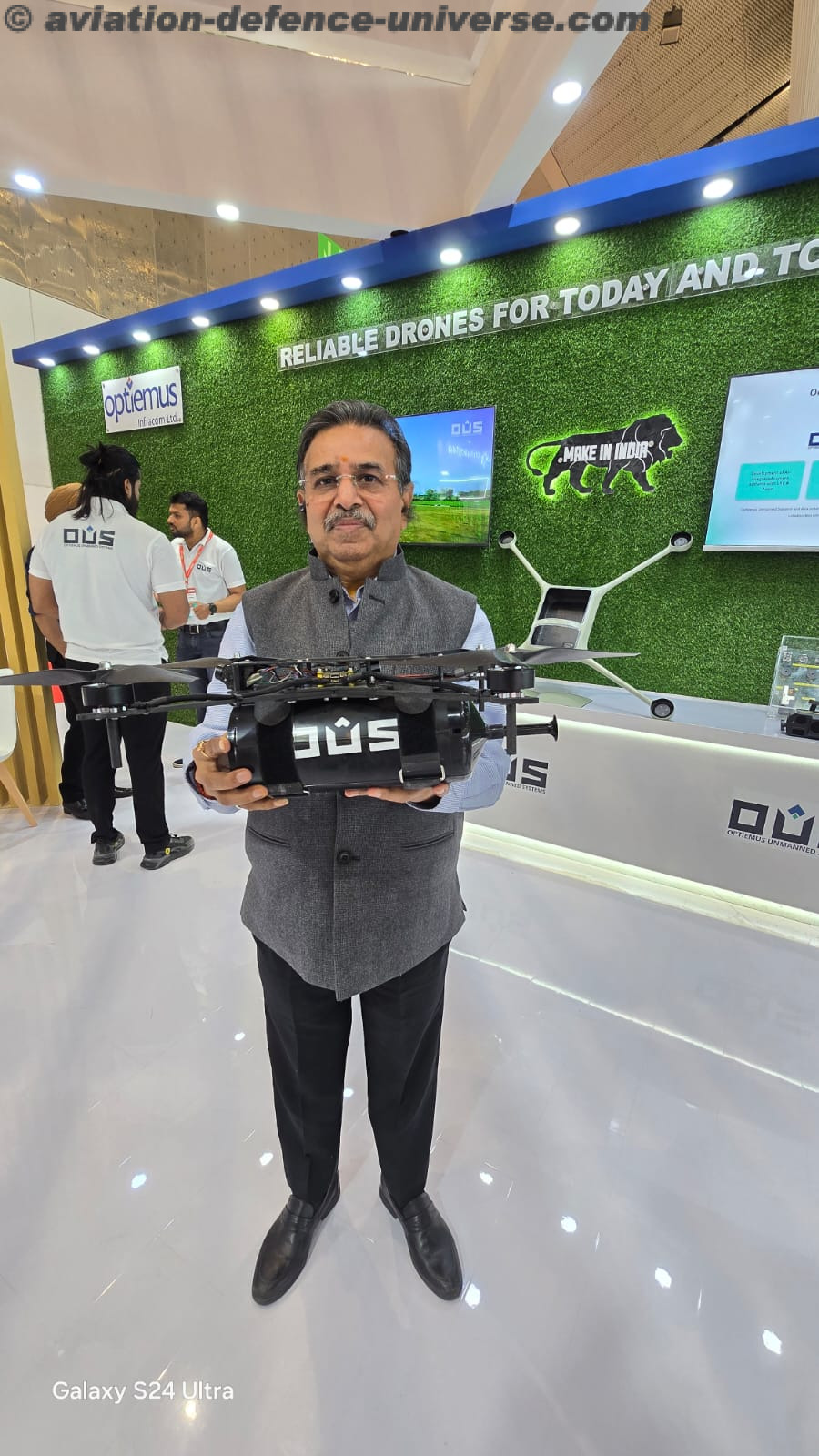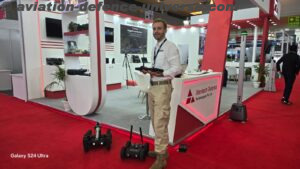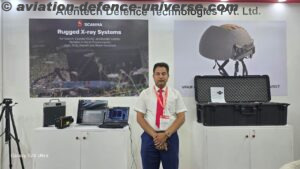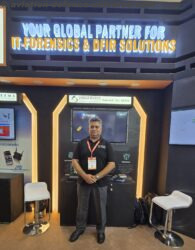- Drones Are the Future of Security and Logistics – Ashoek Gupta , Chairman on Building India’s UAV Ecosystem
By Sangeeta Saxena
New Delhi. 28 April 2025. At Milipol India, the buzz around drones and indigenous defence technology was unmistakable. A key feature of India’s drone journey is the strong push for self-reliance under the ‘Atmanirbhar Bharat’ mission. Indigenous companies are not just assembling drones but also building critical subsystems like flight controllers, communication modules, and payload sensors. Collaborations with friendly nations for technology transfer—while ensuring local design and manufacturing—are further strengthening the supply chain. India’s vast geography, varying terrains, and complex security challenges make it an ideal testbed for scalable, locally-adapted drone technologies. With favourable policy momentum and a growing number of UAV-focused startups, India is well-positioned to emerge as a global hub for drone innovation, production,
Among the standout exhibitors was Optiemus Unmanned Systems, showcasing a wide range of drones tailored for defence, homeland security, logistics, and disaster management. In a candid conversation with Aerospace & Defence Universe (ADU), Ashoek Gupta, the visionary behind Optiemus’ UAV division, shared insights into the company’s commitment to Make in India, their plans for global expansion, and how drones are poised to redefine the future of security and civilian applications in India.
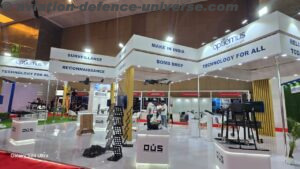 ADU. Sir, we’re meeting here at Milipol and Optiemus has a prominent showcase. What are you exhibiting this year?
ADU. Sir, we’re meeting here at Milipol and Optiemus has a prominent showcase. What are you exhibiting this year?
Ashoek Gupta. We’ve launched four new drone projects at this exhibition, each with distinct capabilities. Apart from showcasing our earlier models, we’re now emphasising fully indigenous development, in line with the government’s Make in India vision. We’ve also partnered with AVIX, a Taiwanese company, to co-develop cameras for mapping and surveillance, which will be locally designed and manufactured for both Indian and global markets.
ADU. Does this partnership come with a full transfer of technology (ToT)?
Ashoek Gupta. Yes, absolutely. Given the current geopolitical landscape, India is becoming the hub for global production. Our agreement ensures full ToT and a commitment to design, manufacture, and export from India.
ADU. That’s significant. Are you open to similar collaborations?
Ashoek Gupta. Certainly. Any international company that aligns with our philosophy—local R&D, manufacturing, and Make in India—is welcome to collaborate with us. We’re not traders; we’re builders of India’s drone ecosystem.
ADU. Drones are increasingly relevant for homeland security and paramilitary forces. What’s your strategy in this segment?
Ashoek Gupta. Security—be it defence or homeland—is our priority. Drones today are used in mapping, surveillance, firefighting, medical delivery, and more. We’re working on high-utility, localised drones ready for future applications. Our focus is first on localising all components and then applying them across sectors like healthcare, agriculture, and internal security.
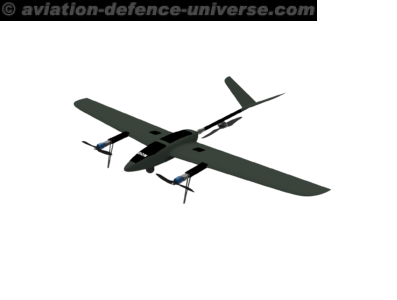 ADU. How self-reliant are you in terms of manufacturing?
ADU. How self-reliant are you in terms of manufacturing?
Ashoek Gupta. We are largely self-reliant. Most electronics are made in-house. We only outsource batteries and motors. Even our cameras will soon be manufactured domestically. This will fulfil the government’s Make in India goal comprehensively.
ADU. Were you involved in the Swamitva Yojana project?
Ashoek Gupta. No we were not there in the drone ecosystem while it happened. We’re a young company—just two years old—but we’re preparing ourselves to participate in such national programmes soon.
ADU. What inspired you to venture into drones?
Ashoek Gupta. I’ve travelled extensively. Seeing drones used for logistics and daily life abroad made me realise how transformative they can be. Optiemus was already into telecom and IT hardware—we were among the first to sell mobile phones in India. So drones were a natural next step.
 ADU. Is there a plan to weaponise your drones for the armed forces?
ADU. Is there a plan to weaponise your drones for the armed forces?
Ashoek Gupta. Yes, we are collaborating with aviation partners to develop weaponised drones. Some of our new platforms are already being tested for payload delivery and strike capabilities. It’s a work in progress, but we’re heading there.
ADU. Are there products planned for the Indian Navy and Coast Guard as well?
Ashoek Gupta. Yes, it’s on the roadmap. We understand their requirements are different, and we’re working on solutions that suit their operational needs.
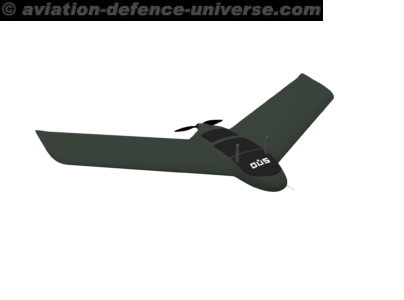 ADU. Optiemus drones have been seen in tough terrains, like Leh. What’s been your experience so far?
ADU. Optiemus drones have been seen in tough terrains, like Leh. What’s been your experience so far?
Ashoek Gupta. We were at 23,000 feet during trials, and our team successfully demonstrated drone capabilities there. It’s a testament to the strength and commitment of our young engineers. In just two years, we’ve made significant progress.
ADU. How are you addressing concerns around Chinese components?
Ashoek Gupta. We are fully aligned with the national policy of avoiding Chinese-origin parts. Everything we do is focused on local sourcing and manufacturing. The camera partnership with AVIX is a smart move—Taiwan is a friendly nation, and production will happen in India with full ToT.
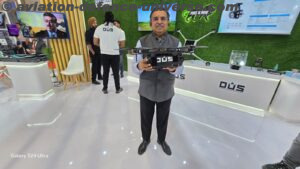 India’s drone ecosystem is undergoing rapid transformation, driven by government reforms, indigenous innovation, and a surge in demand across defence, homeland security, agriculture, logistics, and disaster management. Policy initiatives like the liberalised Drone Rules 2021, the Production-Linked Incentive (PLI) scheme for drones and drone components, and the ban on imports of foreign drones have catalysed domestic manufacturing and R&D. Public and private players—ranging from startups to established defence firms—are now investing in drone development, with capabilities spanning from mapping and surveillance to medical delivery and tactical strike operations.
India’s drone ecosystem is undergoing rapid transformation, driven by government reforms, indigenous innovation, and a surge in demand across defence, homeland security, agriculture, logistics, and disaster management. Policy initiatives like the liberalised Drone Rules 2021, the Production-Linked Incentive (PLI) scheme for drones and drone components, and the ban on imports of foreign drones have catalysed domestic manufacturing and R&D. Public and private players—ranging from startups to established defence firms—are now investing in drone development, with capabilities spanning from mapping and surveillance to medical delivery and tactical strike operations.
 The Indian Armed Forces, paramilitary units, and state police forces are increasingly incorporating drones into their standard operating procedures, recognising their utility in both combat and peacetime operations.
The Indian Armed Forces, paramilitary units, and state police forces are increasingly incorporating drones into their standard operating procedures, recognising their utility in both combat and peacetime operations.
In just two years, Optiemus Unmanned Systems has evolved into a serious contender in the drone technology space, embodying India’s aspirations for indigenous defence manufacturing. Under Ashoek Gupta’s leadership, the company is not only supporting the Make in India initiative but is also gearing up to be a global drone exporter. With a strong vision and an agile team, Optiemus is proving that Indian innovation in aerospace and defence is ready to soar.
As told to Sangeeta Saxena








